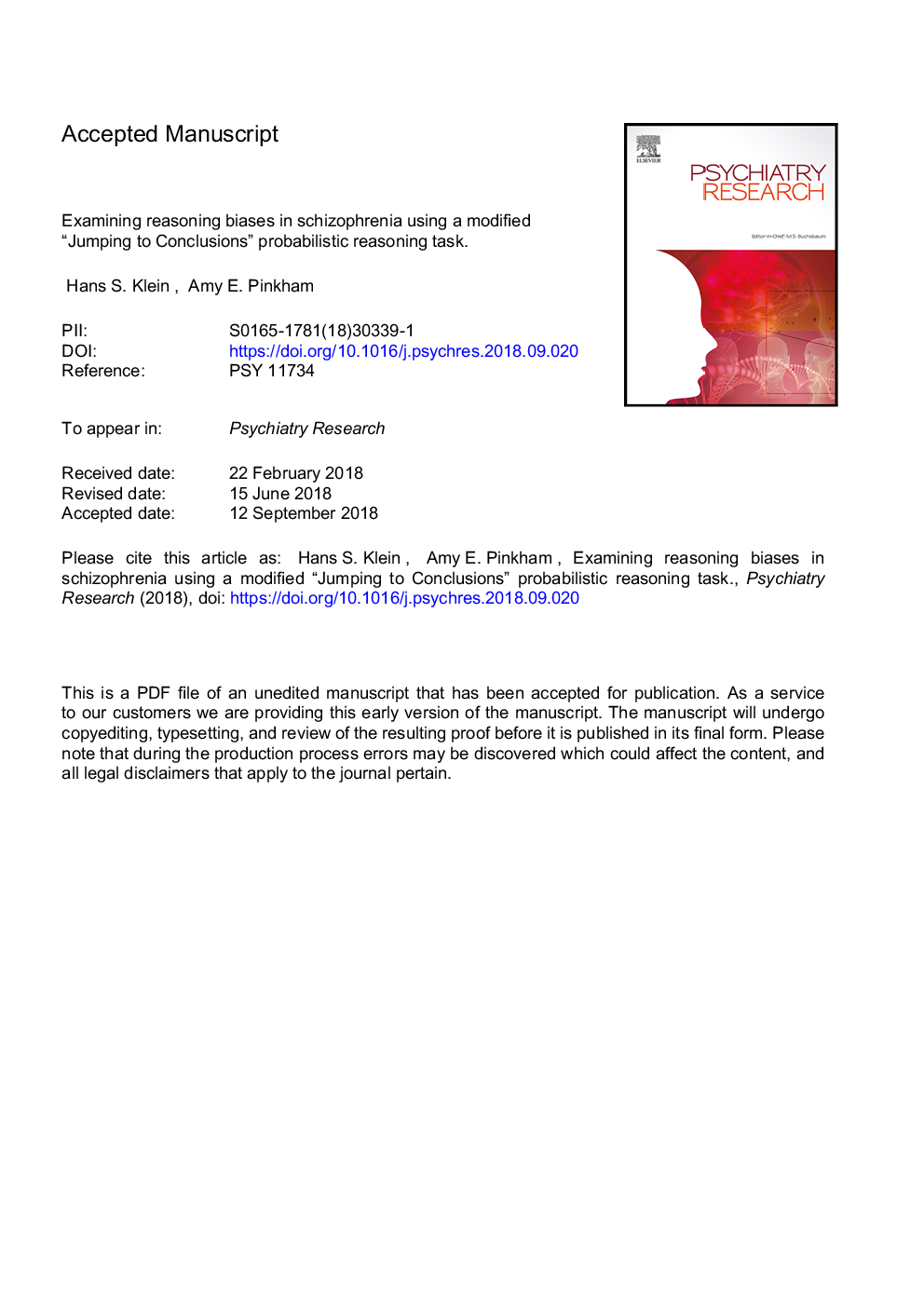| Article ID | Journal | Published Year | Pages | File Type |
|---|---|---|---|---|
| 10225509 | Psychiatry Research | 2018 | 32 Pages |
Abstract
Although the Jumping To Conclusion (JTC) bias has been extensively studied in relation to schizophrenia and persecutory delusions, the relationship between JTC and other reasoning biases implicated in delusional ideation is not fully understood. We modified the traditional JTC task to assess co-occurrence of reasoning biases in decision making. Forty-six patients with schizophrenia and 46 healthy controls completed two versions [neutral colored beads and salient comments] of the modified task. We replicated previous findings indicating that patients showed a greater JTC bias, and in both groups, the JTC bias was more pronounced for the salient task. However, we observed a significant effect for non-Bayesian judgments, indicating that patients showed greater difficulty in probabilistic reasoning. When controlling for probabilistic reasoning ability, the observed JTC bias effects were diminished. Our findings that faulty probability assessment accounts for the JTC bias indicates that the traditional JTC bias task may not represent an inherent hasty decision-making bias, but rather an inability to fully understand and execute the stated goals of the task. These results call into question the current understanding of the JTC bias and the independence of this bias apart from the cognitive demands of the task.
Related Topics
Life Sciences
Neuroscience
Biological Psychiatry
Authors
Hans S. Klein, Amy E. Pinkham,
